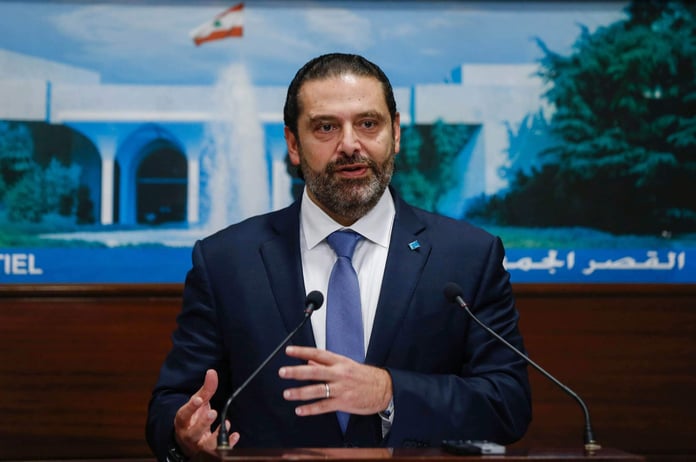
While the government crisis continues in Lebanon amid the worst economic collapse in the country’s history, the former Prime Minister, Saad Hariri, affirmed that “if it were not for the intransigence and selfishness of some, we could have put an end to this terrible collapse,” in the context of his congratulations on Eid al-Adha.
Hariri, who was tasked with forming a government, tweeted on his Twitter account today, Monday: “The blessed Eid Al-Adha and our beloved Lebanon with its good people are ravaged by these crises, which we could have put an end to this terrible collapse, had it not been for the intransigence and selfishness of some. In general, and from Muslims in particular, my warmest congratulations, and every year and you are all fine.
يهلُّ علينا عيد الاضحى المبارك، ولبنان الحبيب مع شعبه الطيب تعصف به هذه الازمات، والتي كان بوسعنا أن نضع حداً لهذا الانهيار المريع، لولا تعنت البعض وانانيته، إنني اتقدم من اللبنانين عامة، ومن المسلمين خاصة، بأحر التهاني،سائلاً المولى الكريم الفرج العاجل، وكل عام وأنتم جميعاً بخير
— Saad Hariri (@saadhariri) July 19, 2021
It is noteworthy that Hariri had announced Thursday that he had given up the task of forming a new government that is supposed to carry out reforms that international institutions require approval to provide aid that the country desperately needs. On Wednesday, Hariri presented a government formation to President Michel Aoun comprising 24 specialized ministers in line with the French initiative, but Aoun rejected this formation.
It is noteworthy that Hariri has been at odds with Aoun over the formation of the new government since his appointment in October. Over the past months, he presented several proposals to Aoun, but the two men were unable to agree on a government formation, as Lebanon plunged into a deeper economic collapse.
The poverty of the population…and the devaluation of the currency
And Lebanon has been without a government since the resignation of Hassan Diab’s government in the wake of the August 4, 2020 explosion in the port of Beirut , which killed more than 200 people, injured thousands, and destroyed entire neighborhoods in the center of the capital.
The country is also facing an economic collapse described by the World Bank as one of the worst recessions in contemporary history.
In addition, the financial crisis pushed more than half of the population into poverty, witnessed a depreciation of the currency by more than 90% in about two years, and the political crisis contributed to the deterioration of the situation.












